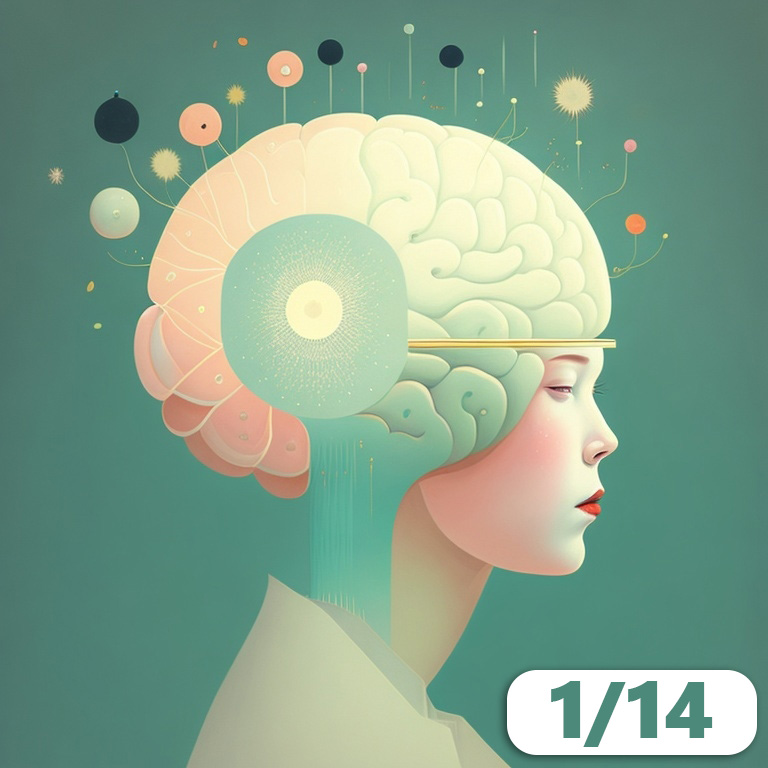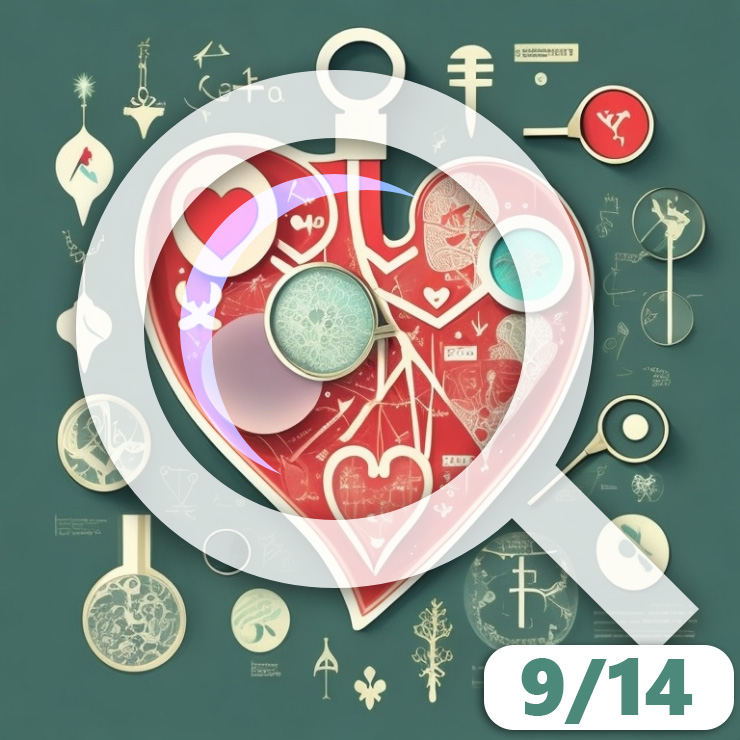

“Who was the 2nd person to step on the moon?” Askes a dean of a reputed educational institute at a morning assembly of a graduating class. Students struggle to find the answer. Without giving students much time to think the dean says “the fact that you have to remember, proves that no one remembers the person in 2nd place”.
This scene from the Indian movie raises important questions about the notion of success and happiness. The dean's statement highlights the societal pressure to strive for conventional success, but who decides what constitutes success? And is success even guaranteed to bring happiness? Happiness and success are subjective experiences, and what brings happiness to one person may not do so for another.
It's essential to remember that success is not always a zero-sum game, and it's okay to not always be in first place. Just because people don’t remember you, does not devalue your work. You cannot take away what Buzz Aldrin achieved just because he was 2nd to step on the moon.
The emphasis should be on personal growth, learning, and fulfilment, rather than solely on achieving conventional success. It's crucial to define success and happiness for oneself, and not let external factors dictate it. So, it's not bad to be in second, third, or fourth place, as long as you are satisfied with your own personal progress and achievements.
The title ”Space Between Average and Excellence” means that you need to target to be at least “Above average”.

This article is meant for individuals who are facing challenges in finding contentment, experiencing career-related anxiety, or grappling with questions about their job satisfaction, social pressure, mid-life crisis, or similar existential issues.
Although it specifically addresses designers, there are lessons to be learned for professionals from other fields as well. The content is particularly relevant for those working in the information technology and similar industries.
Everyone has different aspirations and their own definition of success and happiness. It is not necessary for everyone to aim for conventional high achievements like becoming a "Jobs, Gates, Armstrong, or Musk". Instead, success and happiness are personal and unique to each individual. They can be achieved through hope, consistency, sincerity, perseverance, dedication, and focus, in taking one step at a time towards their goals. It is important to acknowledge and pursue what truly brings fulfilment and satisfaction to you, rather than just following societal norms or expectations.
The thought about being pragmatic in setting our own goals could be tricky. If you don’t have any dependant family your goals can be different. If you have a family, then it’s a different ballgame all together. There is a chance of complacency creeping in and hence it’s a challenge to ensure that you are not stuck into a comfort zone. Convincing others is not as important as it is to convince yourself.
The content of this article will throw some light on the ”Space Between Average and Excellence” which can be targeted consciously. It will also provide insights into alternative ways of defining and finding happiness and peace in one's career and life, without necessarily having to follow conventional definitions of success and achievement. It highlights the importance of personal fulfilment and how it can be achieved even within the confines of a traditional job. The article also touches upon the concept of "Life Hacks" and provides suggestions for individuals who may feel lost or overwhelmed in the fast-paced, urban lifestyle.

Nature follows a hierarchical structure to sustain balance in the world. One of the most straightforward illustrations of this is the food chain, where each species has a specific place in the ecosystem. The preservation of this hierarchy is critical to maintaining the continued functioning of the natural world. Each level, from the smallest organisms to the largest predators, holds a unique and vital significance in supporting the delicate interplay of life on earth.
"Cut to" a corporate environment, there is limited space at the top, and the success of a business depends on the contributions of each individual at every level of the hierarchy. While striving for upper management positions is commendable, it's essential to understand your personal strengths, interests, and aspirations, and seek out a role that complements them. By finding the right fit and excelling in your chosen role, you can make a significant impact on the success of the organization and achieve professional fulfilment at the same time.
If everyone were to aim for the top position, the organization would lack the necessary diversity of skills, perspectives, and experiences to function effectively. The lower levels of the hierarchy (The doers) provide the means for the success of an organization, and without them, the top would not be sustainable or stable. Hence, it's important to value and appreciate the contributions of all levels of the hierarchy and work together towards success.
There is enough ”Space Between Average and Excellence”. Aim at a level where you see yourself thrive, and then aim for the next.

Everyone aims to improve their lives and has personal aspirations they hope to attain. These aspirations can change and evolve over time or remain steadfast throughout our lives. It's crucial to take an introspective approach and ask ourselves four important questions:
Answering these questions truthfully can be difficult, but it's essential to continually reflect on them and revise our answers as our lives and circumstances change. By doing so, we can continually improve our self-awareness and strive towards our goals with clarity and purpose.

Life can be compared to the game of Tetris in several ways. Both life and Tetris involve continuously adapting to new challenges, fitting things together in the best way possible, and making choices that impact the outcome. Just like in Tetris, where players must manipulate falling blocks to create a neat row, in life, people must navigate different obstacles and experiences to reach their goals. In both life and Tetris, every action has consequences, and it's up to each individual to make the best decisions to reach success.
In short, Time and resources in life are limited, making it crucial to organize and prioritize to maximize the potential for fulfilment. This requires careful planning, making decisive choices, and being mindful of the consequences of those decisions. By approaching life with strategy and consideration, opportunities arise to make positive changes, leading to a more prolonged, improved, and rich existence.

Being pragmatic and accepting the complexities of reality can be a challenging task, but doing so promptly allows one to reconcile with the choices made in life. The world is not simple or straightforward, and the pursuit of success and happiness may sometimes result in unintentionally or intentionally doing wrong or hurting others.
To ensure ethical and responsible behaviour, there are several guidelines that can serve as a moral compass in decision-making.
These are my thoughts as a designer. Other individuals may not agree with this approach, which is perfectly fine. That’s the reason why each individual will have a different definition of success and happiness and hence will achieve different levels of success and happiness in their respective fields.
"Pobody is Nerfect" How often would you use this phrase as an excuse, is the question you should be asking your conscience.

Taking forward the topic of moral compass, you need to know where to stop. How to convince yourself that its enough and not let it bother you mentally or materialistically. When you say its time to stop, you need to be sure that you and your family don’t have to go reverse on the scale of life style that you have built. Unless you are willingly wanting to do that.
Its taken 48 years for me to understand what WORK – LIFE balance means. In fact, in my opinion the term “Work-Life” itself is wrong. The opposite of Life cannot be work. You have life (Tetris) and you have many other things that constitutes your life, out of which 1 significant part is work.
(View The most effective Philosophy lesson)
There are visionaries who know how the future will pan out and they have a plan to achieve their goals and are focused on their actions which will take them there. Not everyone can be like that.

The impact of social media on our lives cannot be overstated. It has a profound influence on our personal identity, career aspirations, family decisions, and much more. The direction and magnitude of this influence should entirely be within our control, and it should be up to us to exercise caution and use it in a positive and constructive manner.
Let’s see how to establish this control.
The answer lies in asking yourself some questions. For example, if you feel envious of your friend Stuart's perceived success, ask yourself the following questions:
If you honestly have the answers to these questions, you will realize that the comparison is unfair as the parameters are too different.
If you don't have the answers, the comparison becomes meaningless as you don't have enough information for a fair comparison.
In my case, when I find myself in such a situation, I try to focus on my own accomplishments and experiences and ask the following questions. For example:

Kim Goodwin's perspective on products is immensely insightful: she defines "Product is not the code or the design or the service or the system you created. A Product is the Sum total of decisions made by stakeholders."
This idea can be applied to one's life as well, as the choices we make shape our experiences and outcomes.
This means that where ever you are in your life, is a cumulative outcome of the decisions that you took for yourself. This approach eliminates any chances of you comparing yourself with anyone else. This mind-shift can help overcome career-related depression and keep us focused on our goals.
Please note, depression related to personal matters is outside the scope of this discussion. 😊

Once you have these definitions in place, things will fall in place as well. Goals and Priorities become clear which then helps you to plan your actions accordingly. It is also important to accept that these definitions may change at certain point of your life, depending on the situation that you might be in. The Key is to be adaptive and make necessary changes as required in those definitions and again align your actions towards it.
The earlier chapter "Social angle" talks about avoiding comparison between you and your peers. When you get into such situations, when you are feeling envious about your peers, try and learn what trade-offs have they done to achieve their goals. Ask yourself if you are cut out for such trade-offs, if you are not, then just let go of all the envy.

If you wait for a perfect moment, you may have to wait for long and you would end up pushing your actions indefinitely. Procrastination can be incredibly harmful to your growth, success, and overall happiness. Sadly, I have watched as some of my most talented friends have fallen into this trap and ultimately ruined their lives as a result. Even I, in my early days, suffered greatly from this debilitating thought process. It creates a sort of self-imposed prison, a chain reaction of missed opportunities and unfulfilled potential.
Procrastination convinces you to restrict and stop yourself with reasons that you know are not real. You tell yourself that you'll wait for "situation A" to be conducive before solving "situation B," which must be solved before you can even think about addressing "C." In reality, these situations may or may not be related to each other and may or may not be within your control. By expecting a perfect situation to occur, you set yourself up for inevitable delays, costing you valuable time and ultimately hindering your progress.
So, instead of waiting for the perfect situation, you must learn to adapt to the situation at hand, take action, and make adjustments as needed. It's all about being proactive and taking control of your life, rather than being a passive bystander.
To close on this thought I would like to say, that rather than stopping your life while you solve a problem, solve it as you move forward. (Metaphorically speaking).
The task may be filing your tax returns, or fixing that leaking pipe in your bathroom or fixing the kitchen cabinet or organising your music or picture collection or getting your bike serviced. Same formula works for your professional situations.
Just try this formula one. It works like a magic.

It’s a Friday morning, and you have got tickets for the newly released movie that you have been waiting for. Throughout the day, you have something to look forward to, which elevates your energy levels. This helps you to complete your work tasks with high level of energy and focus.
So can you have something, to look forward to, every evening which motivates you to complete your day’s work (main course) and get to the "dessert" item at the end of the day. So it can be a cyclic process, where you get motivation during the day with the upcoming dessert and in-return motivates you for the next day.
These “End of Day” dessert items can be of various flavours. E.g. It could be a family event, or a visit to a restaurant or a movie, or could be a bike ride over a week end, or if you have passions like creating music, or doing a photo shoot, or sorting those 3000 pictures you clicked during your last vacation, or, writing an article such as this one.
Just the way procrastination delays your important and vital decisions or tasks, similarly it may also delay your daily desserts. Its important to reward yourself if you think you sincerely deserve it.

Taking the earlier topic ahead, I mentioned about having "Dessert items" every day to look forward to. I would like to share some examples that gives me happiness, or you may say that its my way of meditation.
I may sound like “Sheldon” the character from “The Big Bang Theory” a Hollywood TV series. I could relate to that character in many ways. These characteristics are better described as Idiosyncrasies and or OCD. But these can be channelized in a very positive way.
Here are few of my Idiosyncrasies and OCD characteristics. I will go in an order of Intensity from low to high.
There are many more things on my list, but these are the top items worth mentioning. This list comes into play when I have spent enough time at work, with my family and friends and now I don’t know what else I should do with the time in hand. That’s the time when I pick up 1 item every day or once in 2-3 days to delve into.
The point is that you should have your own list of passions and hobbies (Desserts) which gives you pleasure, help you meditate and calm yourself down when you are bored, depressed, confused, sad or just don’t know what to do at a given point in time.

Its OK to be in ”Space Between Average and Excellence”. Which also means that you are above average. This is a huge space, and the gas paddle is in your control. Floor the paddle when you want to move towards excellence or just switch to cruise control to stay consistently above average.
If you own your decisions, you will never repent, whatever the consequences may be. If you never repent, you will learn to be happy with your decisions. Success will follow sincerity, honesty and smart efforts.
Make your own definition of happiness and success. Do not get influenced by social norms of being successful or happy. Get influenced in the right way at the right time about the right things. Be selective in extracting inspirations from the world.
Remember, even if you are the 2nd person to step on the moon, even if people don’t remember your name, your achievements will never be denied or taken away from you.
Thank You.
Shantanu C Rao
